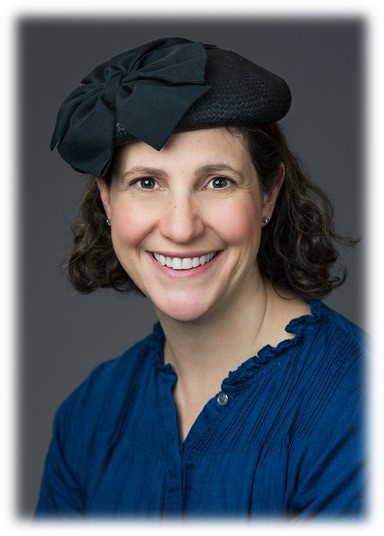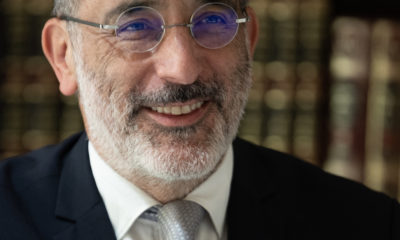
Parshot/Festivals

Sudden change requires slow commitment
I have always been fascinated by the ability to change. On the one hand, change is the most mundane, even trite, topic to discuss on the yamim noraim (high holy days). Yet, the ability to change is one of the most difficult human traits to accomplish. My husband and I have an ongoing philosophical debate: he, perhaps a bit more cynical than I, believes that people can never change. They are who they are. I have a more optimistic, perhaps naïve, approach. With hard work and real desire, people can and do change.
But change is a process. And so is the process of teshuva (repentance).
Teshuva becomes our focus, beginning in earnest in Elul as we begin hearing the shofar, compelling us to reflect on who we are and what we want to change. But the concept of teshuva – knowing how to and what to change – can be overwhelming. Rav Kook, in his beautiful work, Orot Hateshuvah, translated as the Song of Teshuva, offers us a teshuva road map.
In chapter two, Rav Kook writes, “Regarding its length of time, teshuva may be divided into two types: sudden teshuva (teshuva pitomit) and gradual teshuva (teshuva d’ragit).”
Teshuva pitomit – sudden teshuva – comes upon us like lightning, like an illuminating flash that enters the soul. A moment of complete clarity. One minute, you’re blind, in the dark about what you need to do to change or even that there was a problem in the first place. And then, suddenly, it hits you, a clear vision, and pathway forward. It’s the kind of change that we know, just from our gut, our intuition, that we must change. It’s that moment of clarity that a tough relationship must come to an end. Or that new job opportunity is actually the right fit. That your bad habit must come to an end. It’s a breaking point that’s reached, and a conscious decision to begin to change.
The truth is, this kind of sudden awareness can be treacherous, with unexpected results. It’s the sudden teshuva of Rabbi Eleazar ben Dordai (Avodah Zara 17), about whom we are told that he spent his whole life engaged with vice – there wasn’t a prostitute that he didn’t visit. Until one day, while with the most beautiful woman in the world, he has a teshuva pitomit moment. She chastises him that he would never be able to repent, and he realises that he must change. The story ends with Rabbi Elazar putting his head between his knees and crying, asking for forgiveness. Immediately, his soul departs – he dies – and the bat kol, a heavenly decree, proclaims, “Rabbi Eleazar ben Dordai is destined for the life of the world to come!”
Rabbi Eleazar acquired olam haba. He did teshuva, but perhaps, this large, heroic, almost intuitive, fast teshuva comes up short; it’s not enough.
Slow teshuva has to be paired with the second type of Rav Kook’s teshuva – teshuva d’ragi – gradual repentance.
This kind of change happens slowly over a period of time. It’s taking that knowledge of wanting to change, and then doing the hard, plodding work of achieving it. This kind of teshuva may even go unnoticed for a time as the incremental nature of it may not be obvious at first. But, over time, this kind of teshuva results in lasting change.
Both types of teshuva, an emotional flash of clarity and a slow, gradual process, are necessary to achieve lasting change.
Nobel prize winner Daniel Kahneman’s two systems of how we process information, how we are wired to make decisions, resonates with Rav Kook’s two processes of teshuva. In his book, Thinking Fast and Slow, Kahneman describes the intuitive quick, almost gut decisions that people make. His description of fast thinking, which he calls system 1, that our brains are primed to make immediate even emotional assumptions, is similar to Rav Kook’s teshuva pitomit. But to make good decisions in life, system 2 must also become activated – that’s our slow, deliberate ability to process information over time, in a strategic, step by step way – Rav Kook’s teshuvah d’ragit.
It’s the interplay of the two systems, the two forms of teshuva, that help us to change.
It was the sudden onset of the recent riots that propelled South Africans into action. People gathered and distributed food to those affected. The swift and sudden events, almost like lightning, awakened people to a deep-rooted problem that they must face. But the work of creating lasting change, of making policies that keep people safe and fed, of redirecting resources and changing attitudes, will take a long time.
Each person, in his or her way, must have that conscious awakening where they decide that something must change. And then, the work of change begins. I find this a helpful framing as I consider the change I want to make in my own life and in the world at large. This Rosh Hashanah, as I listen to the powerful shofar blasts, I will be thinking about my own process of teshuva. The fast, quick truas: tu-tu-tu-tu-tu will awaken within me the things I know I must change. I will seek clarity, and allow that lighting rod to awaken my soul and help me decide to act. And then, the slower drawn out sounds of the shevarim – tu, tu, tu – will remind me of the gradual work that’s necessary to get there.
May this year, 5782, bring deep cathartic awakenings, quick and necessary resolutions, and also the patience and fortitude to gradually make that change an everlasting and impactful one.
- Rabba Sara Hurwitz, the co-founder and presidentof Maharat, the first institution to ordain Orthodox women as clergy, also serves on the rabbinic staff at the Hebrew Institute of Riverdale in New York City.










